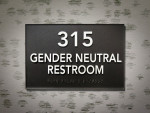 California’s Fair Employment & Housing Council has finalized and adopted new regulations to establish criteria for the use and consideration of criminal history information in employment decisions where such use may constitute a violation of California’s Fair Employment and Housing Act. The new regulations take effect July 1, 2017, and are available here and on the Council’s website. The regulations are intended to clarify, outline and maintain consistency between the laws governing the consideration of criminal history information in employment decisions.
California’s Fair Employment & Housing Council has finalized and adopted new regulations to establish criteria for the use and consideration of criminal history information in employment decisions where such use may constitute a violation of California’s Fair Employment and Housing Act. The new regulations take effect July 1, 2017, and are available here and on the Council’s website. The regulations are intended to clarify, outline and maintain consistency between the laws governing the consideration of criminal history information in employment decisions.
The regulations reiterate existing prohibitions on the use of criminal history information and also require employers to demonstrate a business necessity, in addition to job-relatedness, for requesting a criminal history if the policy or practice of considering criminal history information creates an adverse impact on applicants or employees based on certain protected classes. Applicants and employees bear the initial burden of demonstrating that the policy or practice has an adverse impact on a protected class. If this showing is made, the burden shifts to the employer to establish that the policy is justifiable because it is job-related and consistent with business necessity. To do so, the employer must demonstrate that the policy or practice is appropriately tailored, taking into account several factors including: (i) the nature and gravity of the offense or conduct; (ii) the passage of time; and (iii) the nature of the position held or sought. Even if an employer can demonstrate job-relatedness and consistency with business necessity, an applicant or employee may still bring a claim if he or she can show that there is a less discriminatory alternative available to advance the employer’s legitimate concerns.
Retail employers in California should review their policies and practices to ensure that their use of criminal history information complies with the new regulations. Employers are also reminded of their obligation to comply with the Fair Credit Reporting Act, 15 U.S.C. § 1681 et seq., and the California Investigative Consumer Reporting Agencies Act, Cal. Civ. Code § 1786 et seq.


 statements to Charging Parties upon request. The
statements to Charging Parties upon request. The 
 codified as: Hours and Retention Protections for Formula Retail Employees Ordinance,
codified as: Hours and Retention Protections for Formula Retail Employees Ordinance,